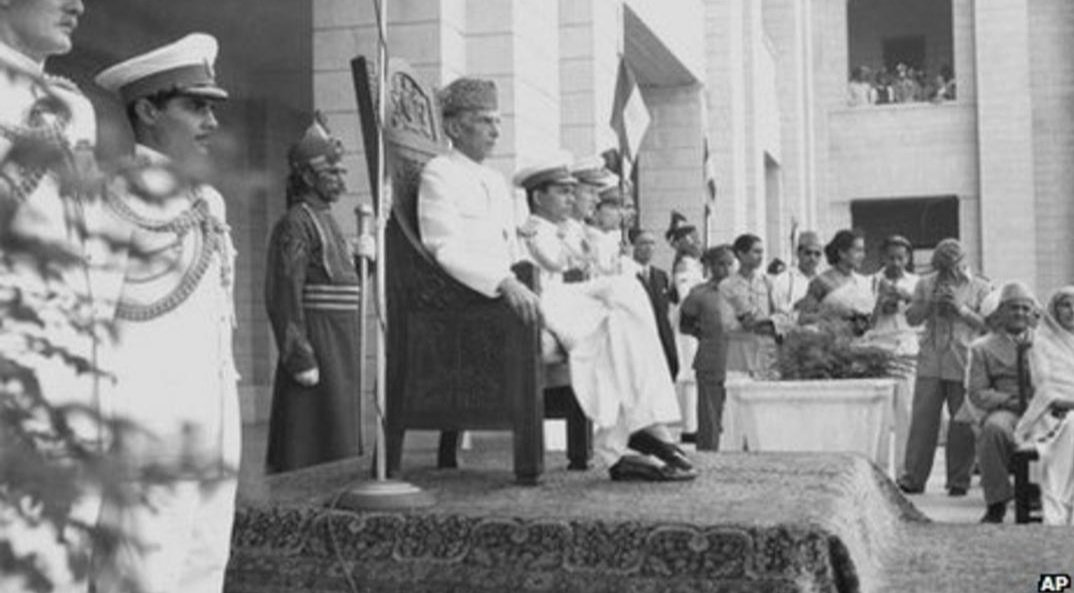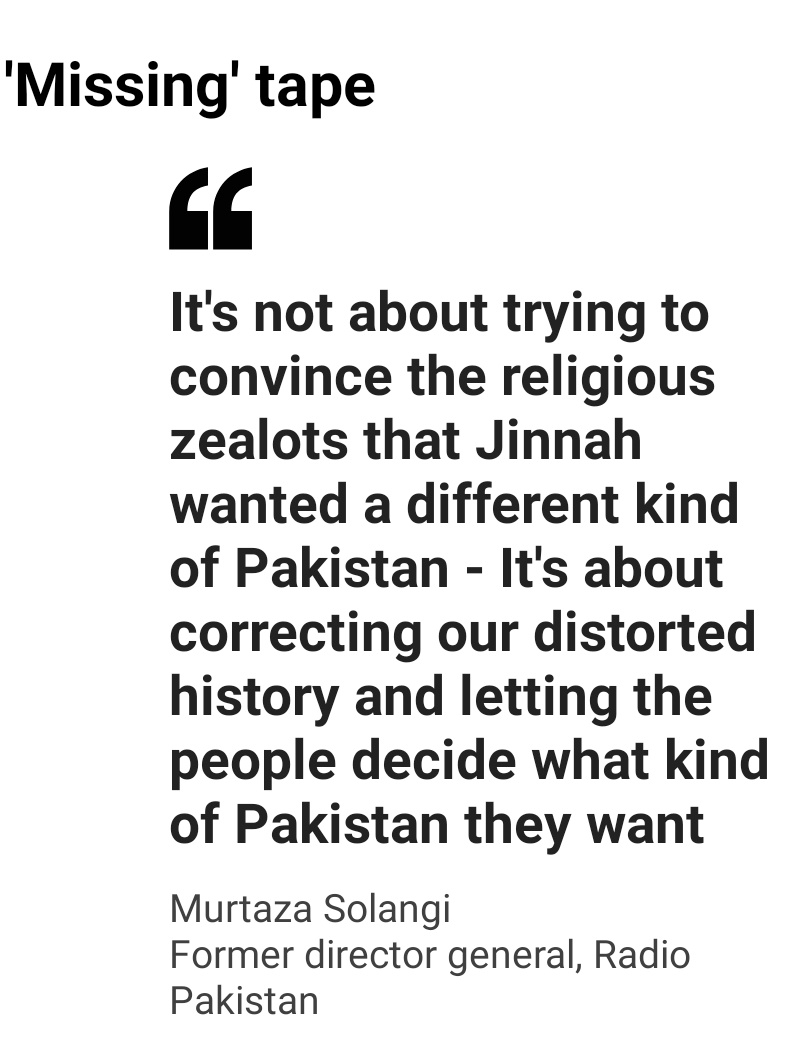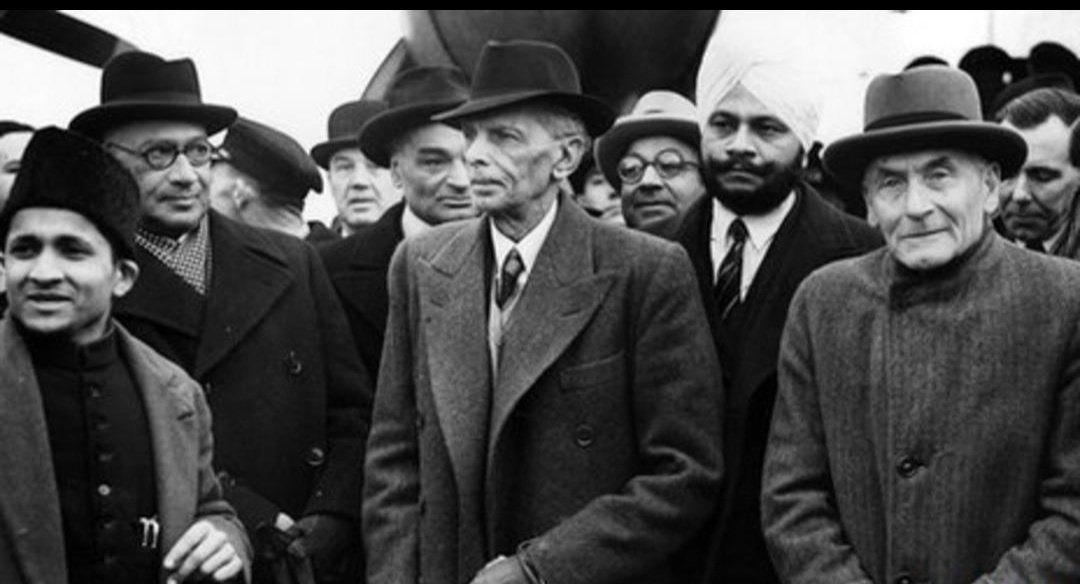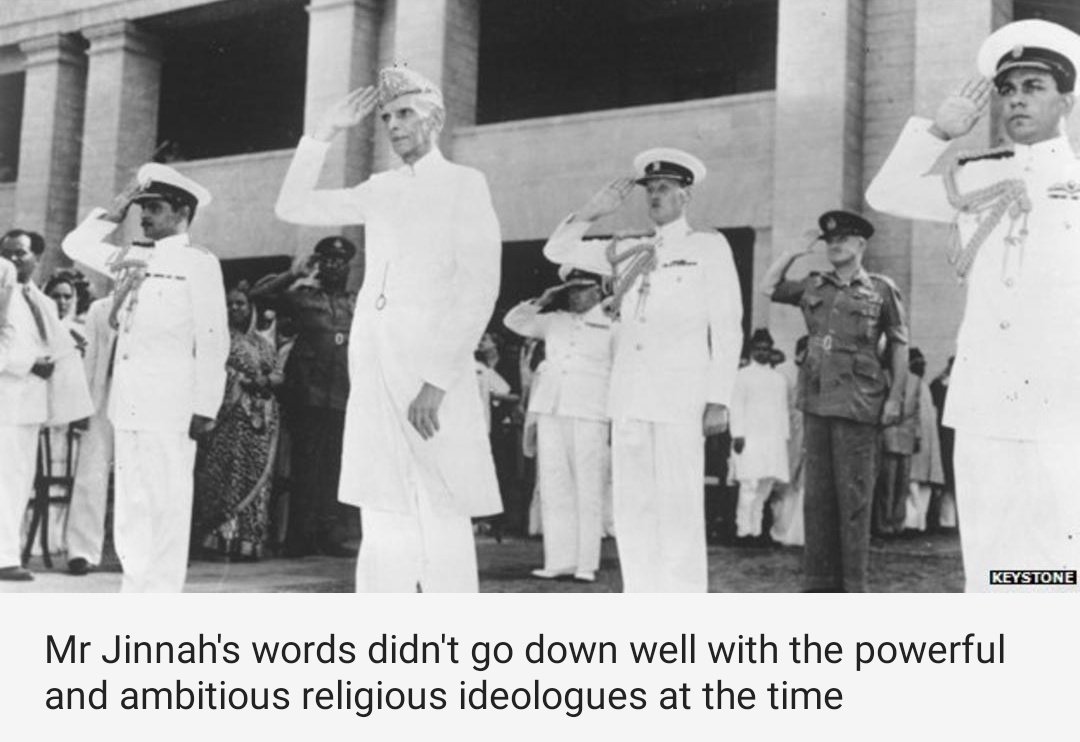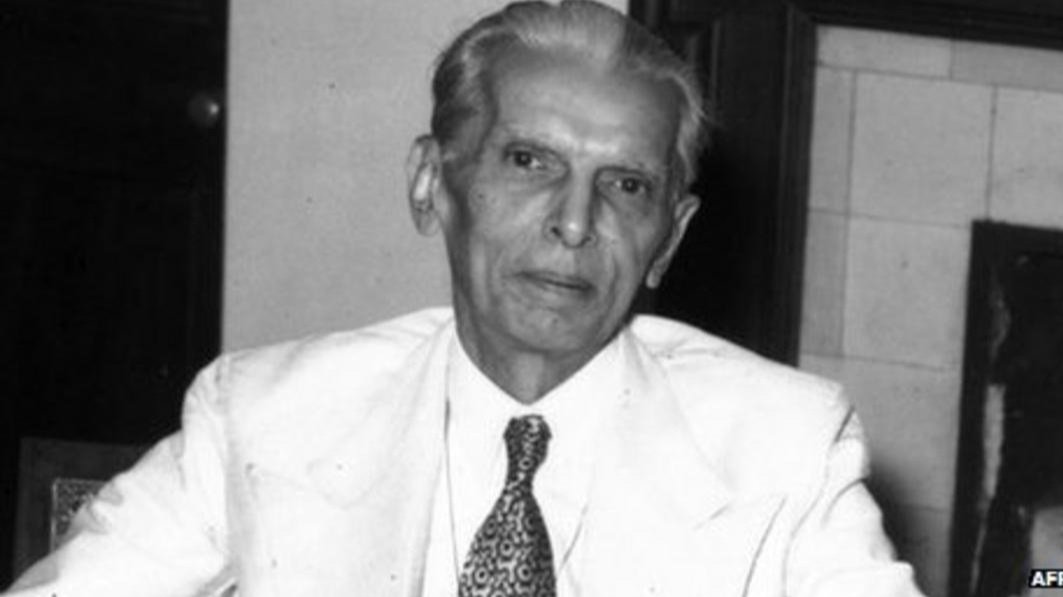Thread
#JinnahsVisionofPakistan
72 years after the death of its founding father, Pakistanis are still searching for Mohammed Ali Jinnah& #39;s vision for the country - and a missing historical speech.
/1
#JinnahsVisionofPakistan
72 years after the death of its founding father, Pakistanis are still searching for Mohammed Ali Jinnah& #39;s vision for the country - and a missing historical speech.
/1
During much of its existence, Pakistanis have been encouraged to believe that Mr Jinnah created Pakistan in the name of Islam as a theocratic state.
Others have disagreed, arguing the founding father wanted a Muslim-majority but secular and progressive country.
/2
Others have disagreed, arguing the founding father wanted a Muslim-majority but secular and progressive country.
/2
The debate over the two competing and contradictory visions has intensified in recent years as the country reels from growing Islamic extremism and militancy
At the heart of this debate are some public addresses of Mr Jinnah given around the time of partition of India in 1947
/3
At the heart of this debate are some public addresses of Mr Jinnah given around the time of partition of India in 1947
/3
The archives of state-owned broadcaster, Radio Pakistan, also contain cranky old audio recordings of most of those speeches, except for one: his address to the Constituent Assembly in the port city of Karachi on 11 August 1947, three days before the creation of Pakistan.
/4
/4
For liberals in Pakistan, it was a crucial speech in which Mr Jinnah spoke in the clearest possible terms of his dream that the country he was creating would be tolerant, inclusive and secular.
/5
/5
"You are free. You are free to go to your temples, you are free to go to your mosques or to any other place of worship in this state of Pakistan," Jinnah declared. "You may belong to any religion or caste or creed - that has nothing to do with the business of the state."
/6
/6
Documented evidence suggest that Mr Jinnah& #39;s words didn& #39;t go down well with the powerful and ambitious religious ideologues around him at the time, who then made sure the speech was virtually blacked out in the next day& #39;s newspapers.
/7
/7
By the time Pakistan embarked on a process of Islamisation and introduced tough new laws aimed at religious minorities in the 1970s and 1980s, the more controversial bits of that speech were largely wiped out from public discourse.
/8
/8
Mr Jinnah& #39;s ideals for Pakistan were further muddled, as the country& #39;s hardliners began to question whether the founding father had indeed said those words in his address, was he in the right frame of mind or what he might have meant by them.
/9
/9
Some in Pakistan suspect it may have to do with the dominant Indian narrative which paints Jinnah as the man responsible for large-scale Hindu-Muslim violence in the run up to the partition and the man who divided India.
/10
/10
The recording of Jinnah& #39;s 11 August speech may be of great importance to students of history on both sides of the border.
/11
/11

 Read on Twitter
Read on Twitter